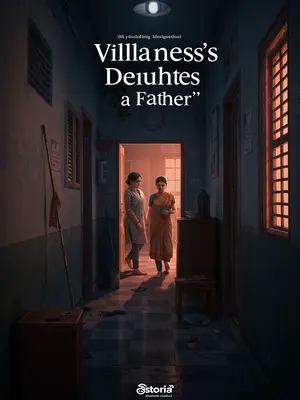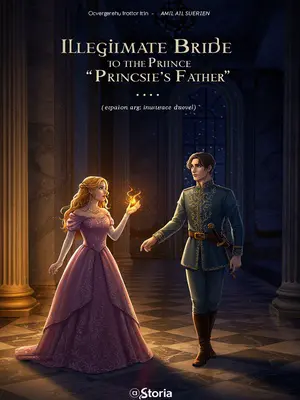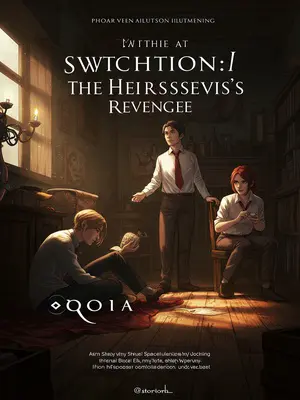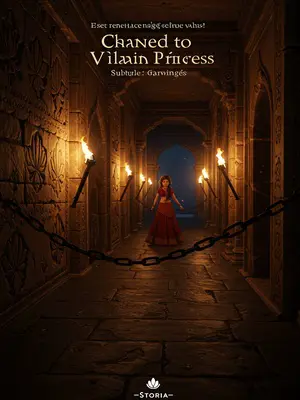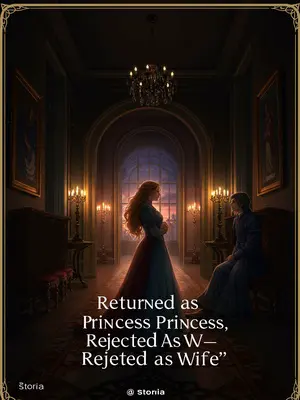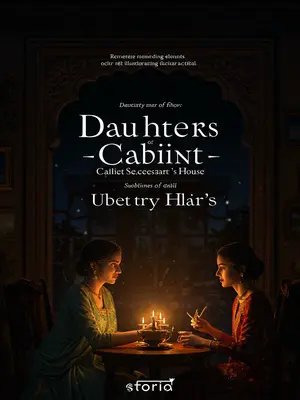Chapter 6: The Weight of Honour
I replied casually and went out for some air.
Someone was squatting outside, yawning. I tossed him a ten-rupee note, and he looked up—it was the club manager.
He folded his hands smartly. "Thank you for your blessing."
I asked, offhand, why there were no older dancers.
The manager laughed. "In this line of work, how many make it to old age? The lucky ones save up to buy their freedom, or get taken away by a patron. Otherwise—"
He didn’t finish, but I understood.
"Then why do they still smile so happily?" I asked.
The manager was stunned. "Crying is for sale too."
"But it’s better to sell with a smile. If the customer is happy, you can earn a few more notes."
I asked, "What about you?"
He lowered his head. "I don’t have the luck to leave. My life and death are here."
When my mother heard I’d gone to a club, she was furious.
But my father laughed. "Jaya is growing up. Time to find you a husband."
Mother and my own mother exchanged pale glances.
I pretended not to notice. "Thank you, Papa, but I am still young and not interested in marriage."
But later, he still sent over two marriage proposals.
Mother smiled and accepted them, then firmly kept them in her circle to learn the rules.
I didn’t care; lately, my biggest trouble was the pain in my chest.
Nanny Rukmini made me bind it with cloth every day. I felt suffocated, but she was firm. "This is the matriarch’s order."
I had to comply. "Does everyone have to do this?"
I picked up the white cloth. "Does Papa, too?"
Nanny Rukmini turned away, suddenly fascinated by the marigolds outside the window. "Yes—everyone, everyone is like you. Arjun and Kabir, too."
I reluctantly wrapped it up.
The next time I saw Arjun, I asked sincerely, "Do you ever feel like there’s a heavy weight on your chest? So stuffy."
Arjun stared at me, a look of sudden, deep emotion on his face. "Because the family’s honour rests on your chest. You are benevolent."
I felt Arjun really couldn’t understand plain speech.
His voice had grown hoarse, no longer as clear as a boy’s.
Kabir’s trip to the club had been discovered by his elder brother, who forced him to train ten times harder at the gym and made him carry thorny branches to my house to apologise.
Big Brother Singh bowed deeply. "Didi, my younger brother was frivolous and crude. I have come to apologise."
I said it was fine, but my eyes never left Kabir.
He was bare-chested, his skin bronzed from years of cricket, his abs sharply defined.
And—
He wasn’t wearing a chest wrap.
Just like that, exposing himself in front of everyone, carrying thorny branches, grimacing in pain.
So crude, and far too improper.
How could a proper young man from a good family expose his chest like this?
No sense of family values!
But somehow, I couldn’t look away.
A strange feeling prickled beneath my skin as I watched him. Part envy, part embarrassment—I thought of my own body, the tight binding under my kurta, and quickly averted my gaze, adjusting my dupatta to cover myself more.
I remembered my mother’s words about dignity and modesty. Yet there was something raw and honest about Kabir—his skin darkened by the sun, the hint of sweat on his brow, the way he stood with a strange, boyish pride despite the punishment. The world of men was a different country, and I was its disguised visitor, marvelling at its rules and freedoms.

